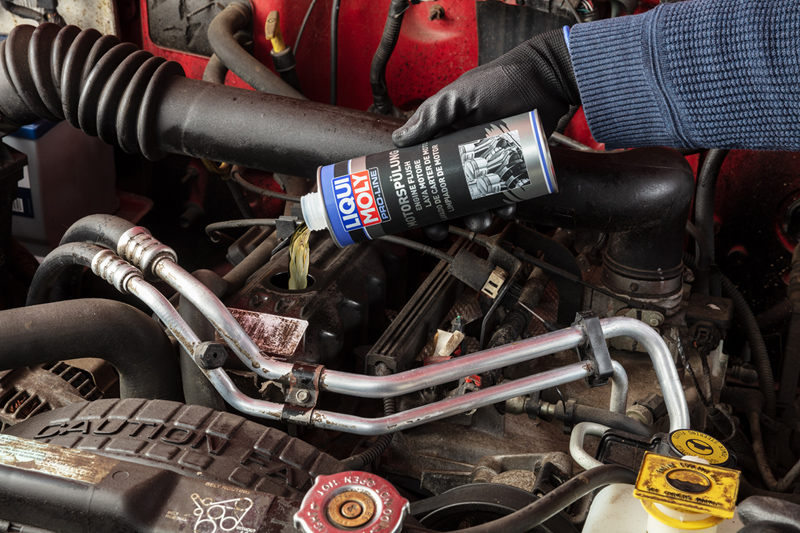
Additives begin as an additional cost, but all in all, fleet operators can save a lot of money by using chemical tools. Liqui Moly outlines some of the benefits of using additives.
Additives are certainly not miracle workers; they can’t halve fuel consumption or make an engine ten years younger. However, additives are useful chemical tools that – rather like mechanical tools – are suitable for some purposes and less so for others. When used correctly, additives can help to reduce operating costs and avoid unexpected breakdowns within a fleet.
One example of this is Liqui Moly’s Super Diesel Additive, which can be beneficial for engines in several ways. Firstly, it cleans the injection system: it removes deposits on the sensitive injectors and prevents new ones from forming. The fuel is then finely atomised again, and burns particularly efficiently. Secondly, it lubricates the injectors, thereby increasing their service life. Thirdly, it increases the cetan number; this improves the ignition properties of the fuel so that the engine runs more quietly and economically. Finally, it protects the entire fuel system from corrosion.
But what does this mean in practice? Dirk Sauer runs a shipping agency in Germany. His trucks already run on Liqui Moly engine oil, so he wanted to try the Super Diesel Additive. For this purpose, he chose the stationary Volvo truck engines that power his block-type thermal power station. These engines sometimes run for 24 hours at a stretch at maximum load.
“We were able to reduce consumption from 75L to 72L per hour,” says Dirk. “This alone saves us about 2160L of fuel per month. It’s good for our budget and good for the environment, too.”
The second effect in terms of savings are the reduction in maintenance costs and downtime. “Previously, we had to replace the expensive injectors every year, due to the high loads”, says Dirk. “Since we started using Liqui Moly, we’ve had no damage or malfunction in the injectors at all.”
For fleet operators, Super Diesel Additives are also available in large containers – including drums of up to 205L– and are also available in the form of a concentrate. This reduces costs per litre, and means that you can also use the additive at your own filling station. This eliminates the need for cumbersome handling of the cans when refuelling, and ensures that every vehicle really does benefit from the advantages the additive has to offer.
Another example of a useful chemical tool from Liqui Moly is Engine Flush. This is added to the existing oil shortly before the oil change, while the engine is running at idling speed for around 10 to 15 minutes. During this time, the active ingredients dissolve deposits and contamination in the oil circuit, allowing them to be drained out with the oil. The fresh oil enters a clean engine, and can then achieve maximum performance. This prevents wear as well as engine issues that can develop over time. Such treatment is particularly recommended for vehicles with a high mileage or problematic fuel quality.
The downside of increasingly efficient engines is the fact that they are more sensitive to contamination. Even minor impairments can have a major impact, which is why engine cleanliness is so important nowadays, and why additives are the best choice.








